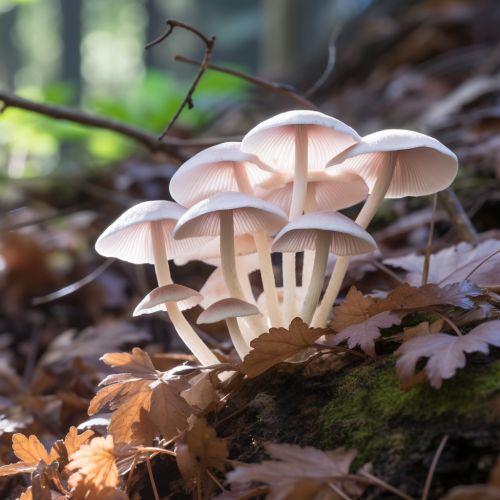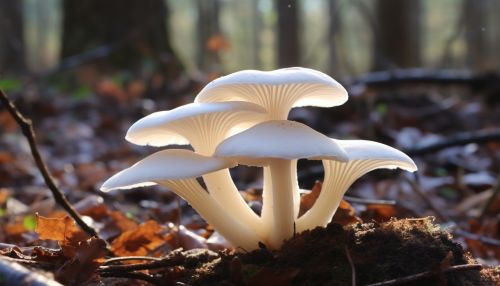Pleurotus eryngii
Taxonomy and Naming
The Pleurotus eryngii species, also known as King Oyster or King Trumpet Mushroom, belongs to the Pleurotaceae family. The genus name Pleurotus derives from the Greek words 'pleuron', meaning 'side', and 'otus', meaning 'ear', referring to the mushroom's distinctive ear-like shape. The species name eryngii is derived from Eryngium, a genus of flowering plants in the family Apiaceae, upon which this mushroom is known to grow.
Description
Pleurotus eryngii is a large, edible mushroom characterized by its thick, meaty texture and mild, savory flavor. The cap of the mushroom is smooth and convex, ranging in color from white to pale brown, while the stem is thick, firm, and white. The gills are white and descend the stem, which can reach up to 8 cm in length and 2 cm in diameter.


Distribution and Habitat
Pleurotus eryngii is native to the Mediterranean region, including parts of Europe, North Africa, and the Middle East. It is commonly found growing on the roots of herbaceous plants, particularly those in the family Apiaceae. This mushroom prefers calcareous soils and can often be found in grasslands, meadows, and roadside verges.
Cultivation
The cultivation of Pleurotus eryngii has become increasingly popular due to its culinary value and potential health benefits. The mushroom is typically grown on a substrate composed of a mixture of organic materials, such as straw, wood chips, and corn cobs. The substrate is sterilized to kill any competing organisms, then inoculated with Pleurotus eryngii spawn. The spawn colonizes the substrate, eventually producing fruiting bodies.
Culinary Uses
Pleurotus eryngii is highly valued in the culinary world for its robust texture and flavor. It can be used in a variety of dishes, including stir-fries, soups, and stews. The mushroom is also popular in vegetarian and vegan cuisine as a meat substitute due to its hearty texture. When cooked, Pleurotus eryngii has a flavor reminiscent of seafood, making it a popular choice for dishes such as mushroom calamari.
Health Benefits
Pleurotus eryngii is not only a delicious edible mushroom but also a source of various health benefits. It is rich in dietary fiber, vitamins, and minerals, and it contains compounds with potential antioxidant, anti-inflammatory, and anticancer properties. Some studies suggest that regular consumption of Pleurotus eryngii may support immune function, improve gut health, and help manage blood sugar levels.
